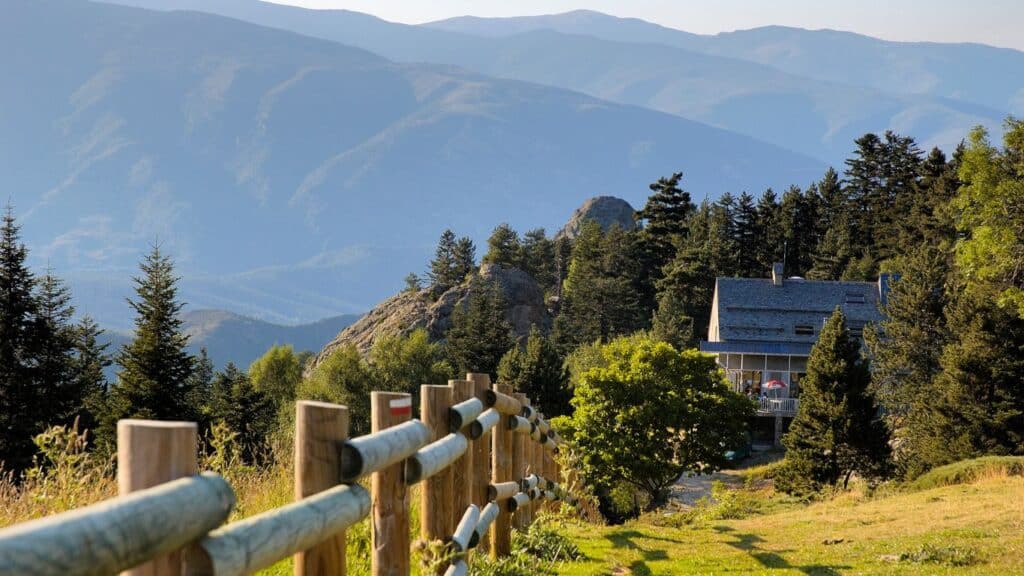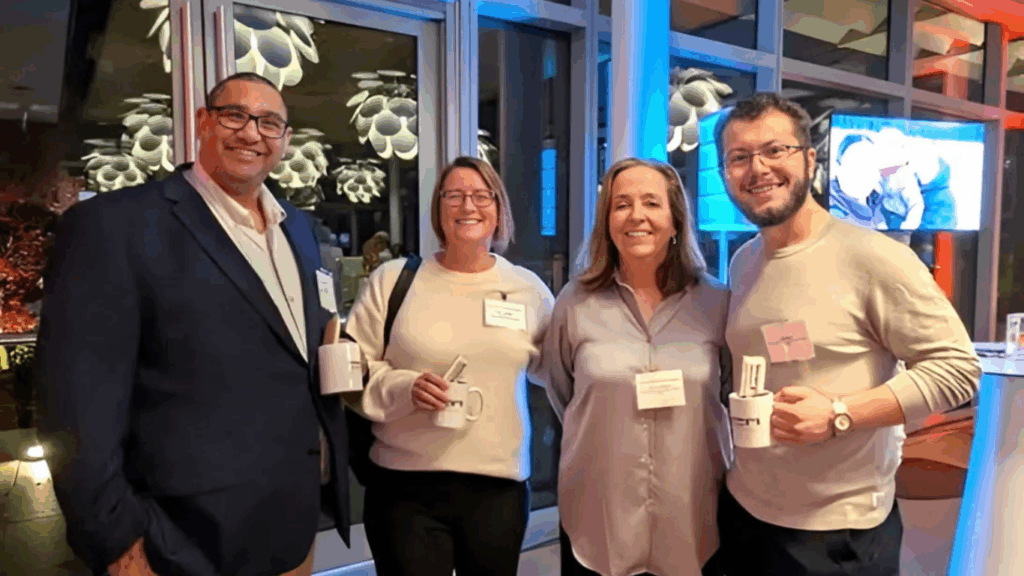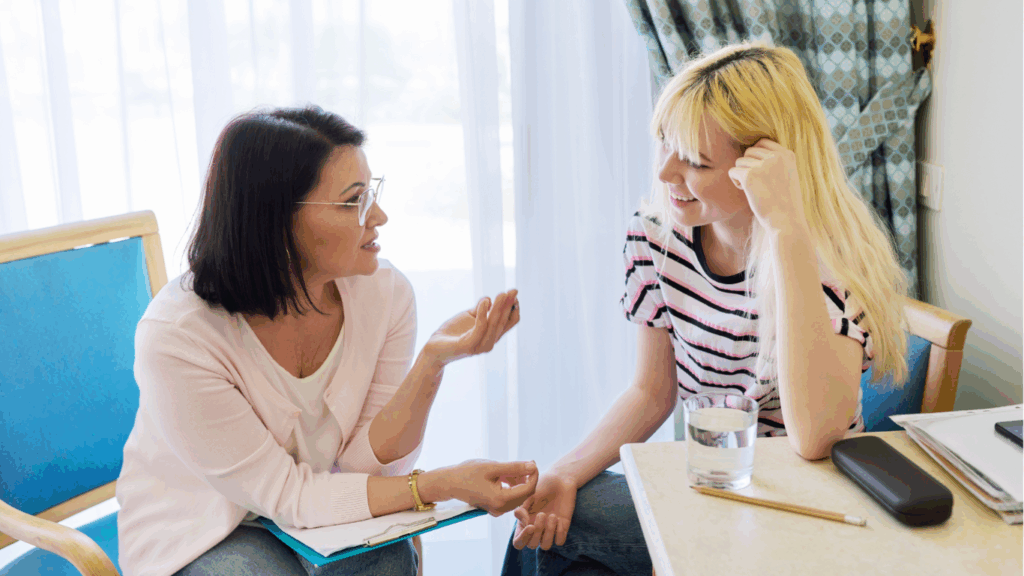This powerful story was the keynote speech at Growing Together: a retreat for parents of persons with Fetal Alcohol Spectrum Disorder (FASD) in January 2010.
Hi, my name is Nicolas. First of all, I’d like to thank the organizers of this retreat for asking me here to share with you. I’d also like to thank and welcome all the parents and families for being here today.
I’ll begin by telling you a bit of my story. I was born in Edmonton, and shortly after birth, I was apprehended by Child Welfare, and spent the first 18 months of my life shuffled through a series of foster homes, until a very loving family eventually adopted me. From there, I was raised in what you might call an upper middle class suburb of Calgary. I consider myself very blessed, as far as being a Native adopted into a non-Native family goes.
My parents were always open and honest about the adoption, and about my cultural heritage, knowing that one day I would inevitably have questions. My Pop made us a teepee to camp in, and my mother was always reading Native legends to us, both of them encouraging me, and my younger adopted brother and sister, to seek out our identities for ourselves. This was not as easy as it sounds, since I didn’t know any Native people, and was only ever given a kind of watered down public education explanation of the truth and history; so I didn’t really understand what it all meant.
When I was 10 years old, my adoptive mother passed away from a malignant brain tumor, and my father was left to raise my siblings and I. That would have been a lot to handle as it was, but even before she passed on, I had begun showing some very severe behavioral difficulties. I was stealing, lying and destroying property in the most senseless manners with no explanation. I understand now, that for me, the fantasy world that most children live in, and eventually grow out of, was in fact my accepted reality – that I made no real cognitive distinction between the real world and the world of play. This began to cause my Pop a great deal of grief and, eventually, he made the difficult decision to place me back in foster care, at the age of 12. I am not sure if this was something that made things worse, since the brain damage caused by my prenatal exposure to alcohol was already done, and the life of challenges I faced, and continue to face today, was irrevocable. However, it certainly added to my inner confusion and chaos.
As I moved through my teens, I again went through multiple foster homes and group homes, my behaviors worsening and eventually leading to substance abuse and jail time. But again, I made no connection that what I was doing was harmful, since now I was finally living with and being accepted by Native people, which was something I had longed for all my life. And since the “tough, cool” Native youth I lived with were all drinking and doing crime, I figured the only way to gain recognition from them was to be a follower. To be perfectly honest, it worked and it felt good to fit in, since at this time, although I knew I was Native, I had no idea where my own tribe or biological family came from. It was also during this period that I began to learn the truth about things like the residential school era and the reserve system, which, of course, fueled my frustration and sense of dislocation.
By my early 20’s, Fetal Alcohol Spectrum Disorder had pretty much affected my life in all the ways that studies have shown it to affect lives: I had dropped out of high school, was homeless, alcoholic, and totally incapable of functioning as a responsible adult. I was still in and out of jail, and stealing from family members, and basically had no idea why I couldn’t just “get it together”.
It was about this time I began to learn about FASD, mainly by way of my own self-education. I have a strong ability in reading and writing and so my comprehension of the scientific and academic literature about FASD made sense. Suddenly, I began to understand what was wrong with me – nothing. I was not a bad person. I was not crazy or stupid. I had a legitimate medical condition that could be explained and diagnosed by a doctor and which helped put all those irrational behaviors in perspective for me. And this, I believe, was the beginning of my healing: knowledge and acceptance.
Truthfully, however, because FASD is incurable and irreversible, my basic intellectual understanding of my condition did nothing to change my impulsive, erratic behaviors or my self-destructive emotion instability. I never did meet my biological mother. For years, I blamed all the consequences of my irresponsible actions on this poor woman who had not only gifted me with life, but who, in the end, paid the ultimate price for her own behaviors: she lost her son and eventually her addictions took her life. Over time, I have learned to accept responsibility and to forgive both her and myself for simply not understanding ourselves and to forgive our society for not understanding us. Many of you may be able to relate to the seriousness of this emotional sensitivity, as we who live with this condition are highly prone to attention and approval-seeking personality traits, which can and do lead us into extremely reckless and risky situations. Just as I began to acknowledge this harsh reality, I found myself in front of a judge, literally “wowing” her with my pseudo-doctoral thesis on why I had yet again breached my probation and continued to drink and run wild on the streets, when obviously, I was well aware of my own potential for success. “Well, you see your Honour, I’m not really a criminal, per se. I was actually born with an invisible disability and, well, I also just happen to be exceptionally talented.”
“Um…sorry?” See, the very real tragedy, is that most of us who suffer from this often subtly concealed affliction, don’t even know we have it. It is estimated that over 50% of currently incarcerated convicts are quite possibly living with some form of undiagnosed FASD, and will therefore continue to struggle, as I did, forever wondering to themselves, “Why can’t I just change?”
As I said, I believe the key to hope and healing lies in knowledge and acceptance. It’s my personal opinion that our public education system needs to work much harder to genuinely educate the people it is responsible for educating about the widespread prevalence of FASD, especially in a culture so obscenely promotional of alcohol, and teach the potential for personal and social catastrophe for those who remain undiagnosed. Science today is coming close to being able to tell precisely when conception occurs. When that happens, I believe it will be a major milestone in preventing unwitting mothers from harming their unborn children. But for those of us who must face the facts of this complicated burden in the real world, and in our daily lives, I can only offer my personal experience, which has been to seek out my own truth and from there to try and find some kind of spiritual reconciliation for myself. FASD is brain damage, which is physical as well as mental and emotional in its manifestation. So, the balance I have found in realizing that the one thing FASD cannot touch is my spirit.
I have had to work very hard to develop and maintain a practical sort of faith, in which my higher power knows that my spirit is always going to struggle in this world. My spirit is strong and resilient, and I’m finding my place as a happy and healthy human being who has learned to adapt to his environment, hopefully in a way that sets a positive example for the next generation of children, both with and without Fetal Alcohol Spectrum Disorder.
I’d like to thank you all for taking the time to honour me by attending this retreat, and by listening to my story. Incidentally, today is an extra special day for me: it’s my 33rd birthday and I believe that both my mothers would be incredibly proud of all of us. I’d like to leave you all with a very simple yet profound idea, that I find comforts me and helps to guide me through my day-by-day recovery in this wonderful adventure of life: I am not a human going on a spiritual journey. I am a spirit, going on a human journey.





